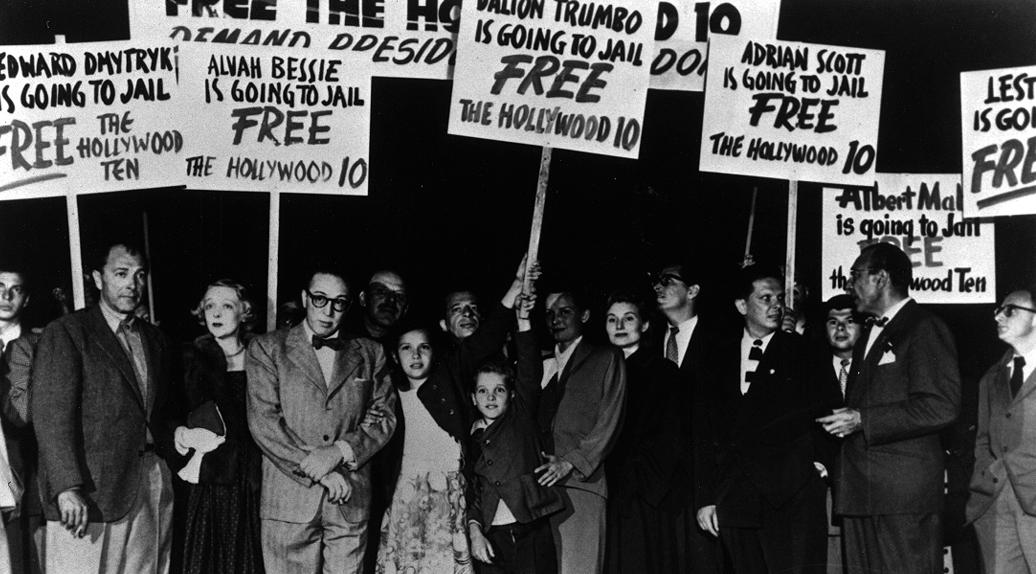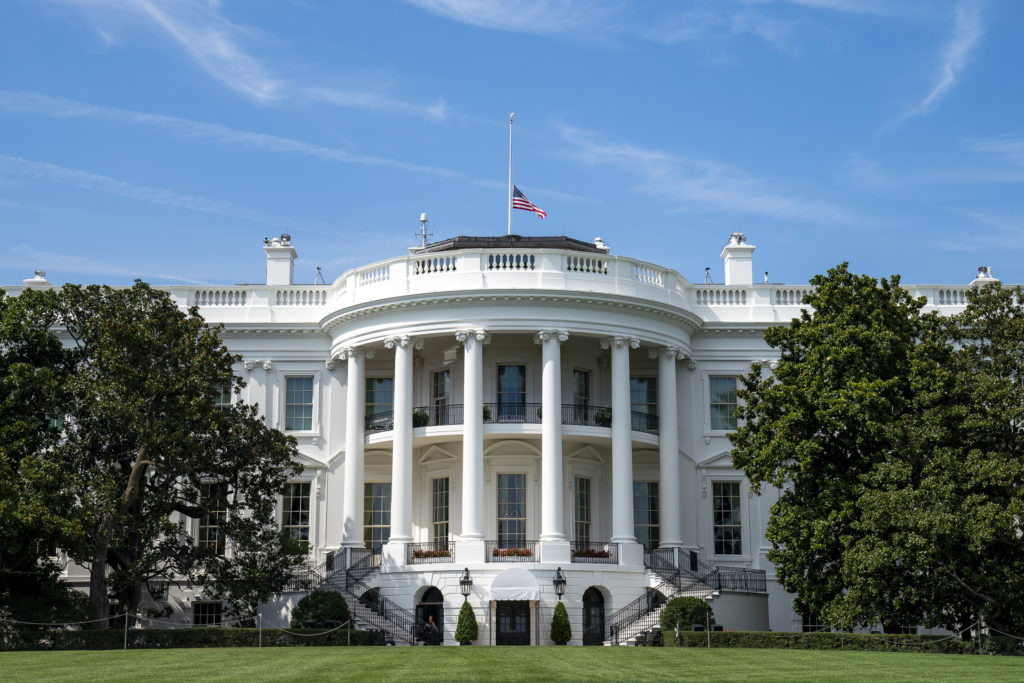Point #5: Evidence That Trump’s Campaign Team Directed Republicans in Multiple States to Produce and Officially Submit Fake Electoral Slates
A summary and evaluation of the committee’s evidence.

Published by The Lawfare Institute
in Cooperation With

♦ Return to Evidence Navigation Page |
Take Me to Point #6 → |
The Jan. 6 select committee members presented statements from Donald Trump and his subordinates directed at Republican officials in battleground states that pressured these individuals to overturn the results of the election in their states by submitting alternate electoral slates. They also illustrated that Trump and his staff continued to make these statements despite both resistance from state officials and clear guidance from certain Trump lawyers that submitting alternate slates was illegal. The committee presented deposition testimony from its investigative counsel that showed that these coordinated efforts resulted in the actual submission of fake electors in several battleground states. The committee presented all of its evidence related to this point in its June 21 hearing. As with the previous point, the evidence presented here was not ambiguous or subject to innocent interpretation.
Much of the June 21 hearing consisted of the committee’s evidence illustrating Trump’s persistent effort to convince state legislatures to support his bid to overturn the election—including by submitting fake electoral slates. Josh Roselman, investigative counsel for the committee, presented an email showing that just two days after the election, Trump campaign lawyer Cleta Mitchell asked John Eastman to write a memo “outlining the constitutional role of state legislatures in designating electors.” Eastman did so, distributing the memo to senior officials at the White House and professing the argument publicly by Dec. 3, 2020.
The committee showed that Republican state officials protested against the proposal, calling it unlawful. Georgia Governor Brian Kemp, for example, stated that “[a]ny attempt by the legislature to retroactively change that process for the Nov. 3 election would be unconstitutional.” Roselman then detailed that as officials pushed back against the president’s demands, his pressure campaign intensified, sometimes calling officials out by name on social media and urging his supporters to reach out to them and “demand a vote on decertification.”
The committee also displayed a Trump campaign script and corresponding voice-over showing that campaign workers told Republican legislators, “You have the power to reclaim your authority to send a slate of Electors that will support President Trump and Vice President Pence.”
Roselman further detailed that the president and his advisers sometimes directly contacted state officials themselves. For example, he said, Pennsylvania Speaker of the House Bryan Cutler “received daily voicemails from Trump’s lawyers in the last week of November.” The committee presented voicemails from Trump attorneys Rudy Giuliani and Jenna Ellis on Nov. 26, 27, and 28. After Cutler asked his lawyers to tell Giuliani to stop calling, Trump’s former lawyer nonetheless continued to reach out, saying on Nov. 30, “I understand that you don’t want to talk to me now. I just want to bring some facts to your attention and talk to you as a fellow Republican.” And on Nov. 30, former Trump strategist Steve Bannon urged people to take part in a protest outside Cutler’s home, where Trump supporters later gathered, pushing the speaker to “decertify” the electors’ votes. During the first protest, Cutler told the committee, his 15-year-old son was home alone—and his family had to disconnect their home phone line for a period of three days “because it would ring all hours of the night.”
Rolselman additionally stated that the committee spent millions of dollars publishing ads that placed mounting pressure on election officials. The committee played a montage of protests and threats made against state lawmakers in the lead-up to Jan. 6, with one protester stating that “the punishment for treason is death.”
Rep. Adam Schiff said that the Trump electors and those involved were told that fake slates would be used only if Trump won his legal challenges to the election. For example, Andrew Hitt, former Wisconsin Republican Party chairman, said that he was informed that the electors’ votes “would only count if a court ruled in our favor.”
Committee Investigative Counsel Casey Lucier presented a Nov. 18 memo from Trump campaign lawyer Kenneth Chesebro arguing that the campaign should organize its own electors in the swing states that Joe Biden had won. Chesebro wrote, “Prudence dictates that the ten electors pledged to Trump and Pence meet and cast their votes on December 13 (unless by then the race has been conceded).” Cassidy Hutchinson, former aide to White House Chief of Staff Mark Meadows, testified that “Mr. Giuliani, several of Mr. Giuliani’s associates, Mr. Meadows, [and] members of Congress” were involved in discussions concerning alternate electors in the weeks preceding the election.
Trump also directly enlisted the help of the Republican National Committee (RNC) to coordinate his effort. Ronna Romney McDaniel, RNC chair, stated during deposition that the president had contacted her and “turned the call over to Mr. Eastman, who then proceeded to talk about the importance of the RNC helping the campaign gather these contingent electors in case any of the legal challenges that were ongoing changed the result of any of the states.”
The committee played footage of Trump campaign lawyers Matt Morgan and Justin Clark stating that they had felt that the plan to convene electors in states that Trump lost was inappropriate. Additionally, Hutchinson confirmed that the White House counsel’s office had told Meadows, Giuliani, and a few of Giuliani’s associates that the plan to have alternate electors meet and cast votes for Trump was “not legally sound.”
The select committee also played footage from an interview with Robert Sinners, a former Trump campaign staffer, who stated that “[w]e were just kind of, kind of useful idiots or rubes at that point. … I’m angry because I think, I think in a sense, you know, no one really cared if, if people were potentially putting themselves in jeopardy.” He further told the committee that he “absolutely would not have” participated in the plan to replace electors had he known that the president’s own legal team was not on board.
Lucier further stated that “documents obtained by the select committee indicate that instructions were given to the electors in several states that they needed to cast their ballots in complete secrecy.” Laura Cox, the former Michigan Republican Party chairwoman, testified that a Trump campaign worker had informed her “that the Michigan Republican electors were planning to meet in the Capitol and hide overnight so that they could fulfill the role of casting their vote … per law in the Michigan chambers.” Cox told the committee she had rejected the idea, telling the worker “in no uncertain terms that that was insane and inappropriate.”
Lucier then asserted that the Trump campaign’s scheme was in fact translated into action:
In one state, the fake electors even asked for a promise that the campaign would pay their legal fees if they got sued or charged with a crime. Ultimately, fake electors did meet on December 14th, 2020 in Arizona, Georgia, Michigan, Pennsylvania, New Mexico, Nevada, and Wisconsin. At the request of the Trump campaign, the electors from these battleground states signed documents falsely asserting that they were the quote, “duly elected electors,” from their state and submitted them to the National Archives and to Vice President Pence in his capacity as President of the Senate.
The committee then presented photos of the fake electoral certificates as compared to their authentic counterparts, noting that the fraudulent documents were legally meaningless. However, Eastman wrote in an email that it didn’t matter that the electors lacked state authority, claiming that “the fact that we have multiple slates of electors demonstrates the uncertainty of either. That should be enough. … Better for [Pence] just to act boldly and be challenged.”
The committee further displayed text messages showing that the Trump campaign had attempted “to ensure that the physical copies of the fake electors’ electoral votes from two states were delivered to Washington for January 6th.” For example, a staffer for Sen. Ron Johnson texted a Pence staffer minutes prior to the joint session, stating that Johnson wished to hand-deliver the fake electors’ votes from Michigan and Wisconsin to the vice president, to which Pence’s staffer replied, “Do not give that to him.”
The evidence the committee presented on this point is dispositive. There doesn’t seem to be much, if any, dispute about what happened. The question is whether the conduct in question was illegal or whether the conduct in question was so outlandish that it could be seen as something closer to a political protest. Regardless, that it happened seems beyond dispute.
♦ Return to Evidence Navigation Page |
Take Me to Point #6 → |







